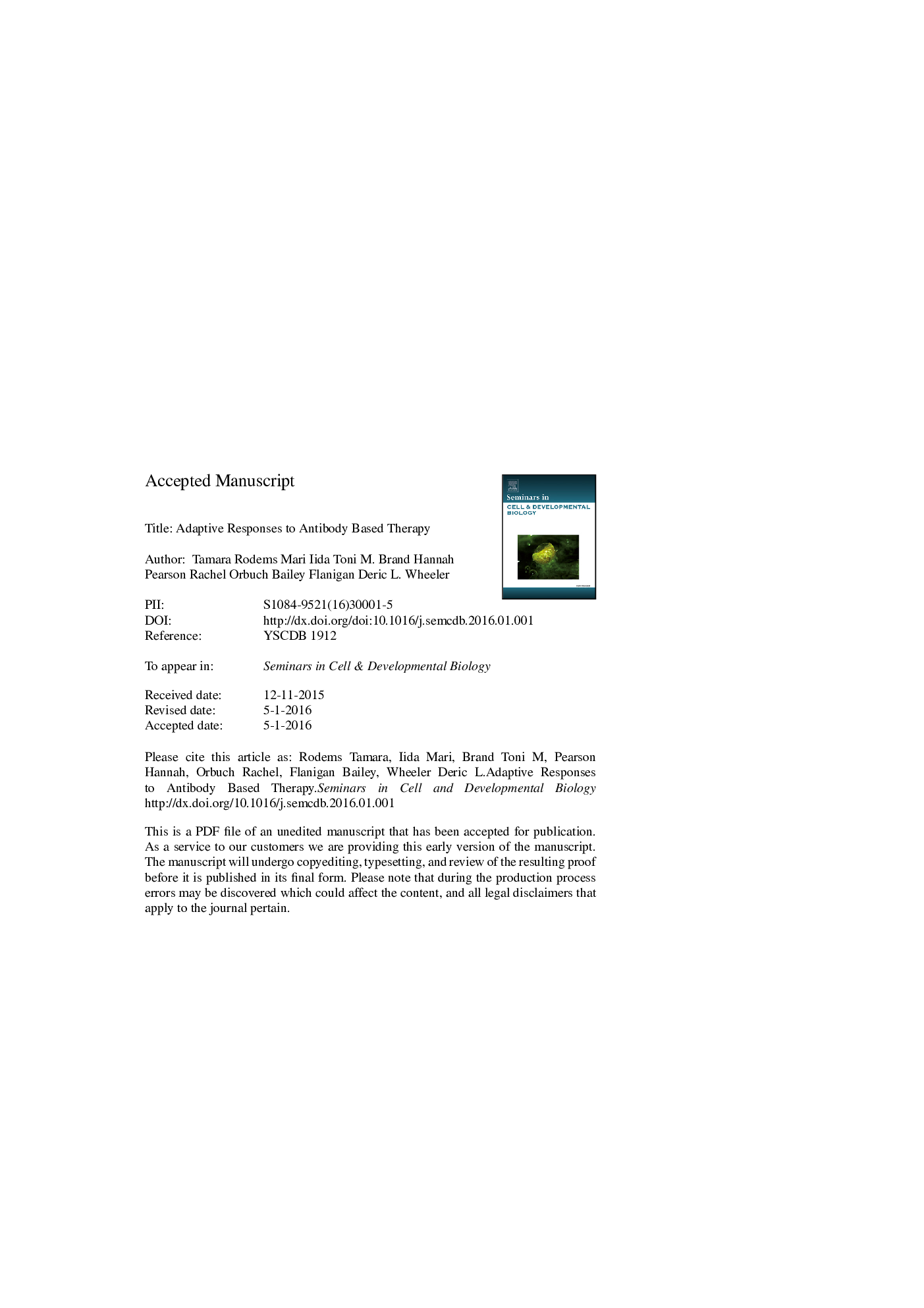| Article ID | Journal | Published Year | Pages | File Type |
|---|---|---|---|---|
| 8480210 | Seminars in Cell & Developmental Biology | 2016 | 40 Pages |
Abstract
Receptor tyrosine kinases (RTKs) represent a large class of protein kinases that span the cellular membrane. There are 58 human RTKs identified which are grouped into 20 distinct families based upon their ligand binding, sequence homology and structure. They are controlled by ligand binding which activates intrinsic tyrosine-kinase activity. This activity leads to the phosphorylation of distinct tyrosines on the cytoplasmic tail, leading to the activation of cell signaling cascades. These signaling cascades ultimately regulate cellular proliferation, apopotosis, migration, survival and homeostasis of the cell. The vast majority of RTKs have been directly tied to the etiology and progression of cancer. Thus, using antibodies to target RTKs as a cancer therapeutic strategy has been intensely pursued. Although antibodies against the epidermal growth factor receptor (EGFR) and human epidermal growth factor receptor 2 (HER2) have shown promise in the clinical arena, the development of both intrinsic and acquired resistance to antibody-based therapies is now well appreciated. In this review we provide an overview of the RTK family, the biology of EGFR and HER2, as well as an in-depth review of the adaptive responses undertaken by cells in response to antibody based therapies directed against these receptors. A greater understanding of these mechanisms and their relevance in human models will lead to molecular insights in overcoming and circumventing resistance to antibody based therapy.
Keywords
EGFRRALTMDGITGF-βTKDFDAhuman epidermal growth factor receptor 3EpiregulinHNSCCRTKTgf-αVEGFRHB-EGFSFKsIGF-1RHER3PI3KEGFHER2IgGmAbSrc-family kinasesMAPKSTATMonoclonal antibodyantibodiesepithelial to mesenchymal transitionimmunoglobulin GEPREMTTyrosine kinase domainFood and Drug AdministrationColorectal cancerNSCLCNon-small cell lung cancerepidermal growth factorHeparin-binding epidermal growth factorVascular endothelial growth factorVascular Endothelial Growth Factor (VEGF)Phosphatidylinositol 3-kinaseCasitas B-lineage lymphomaSignal transducer and activator of transcriptionTherapeutic resistanceMETmammary-derived growth inhibitorPhosphatase and tensin homologuemitogen-activated protein kinasePtenHead and neck squamous cell carcinomaCRCCblreceptor tyrosine kinasesReceptor Tyrosine KinaseHuman epidermal growth factor receptor 2vascular endothelial growth factor receptorEpidermal growth factor receptor
Related Topics
Life Sciences
Biochemistry, Genetics and Molecular Biology
Cell Biology
Authors
Tamara S. Rodems, Mari Iida, Toni M. Brand, Hannah E. Pearson, Rachel A. Orbuch, Bailey G. Flanigan, Deric L. Wheeler,
